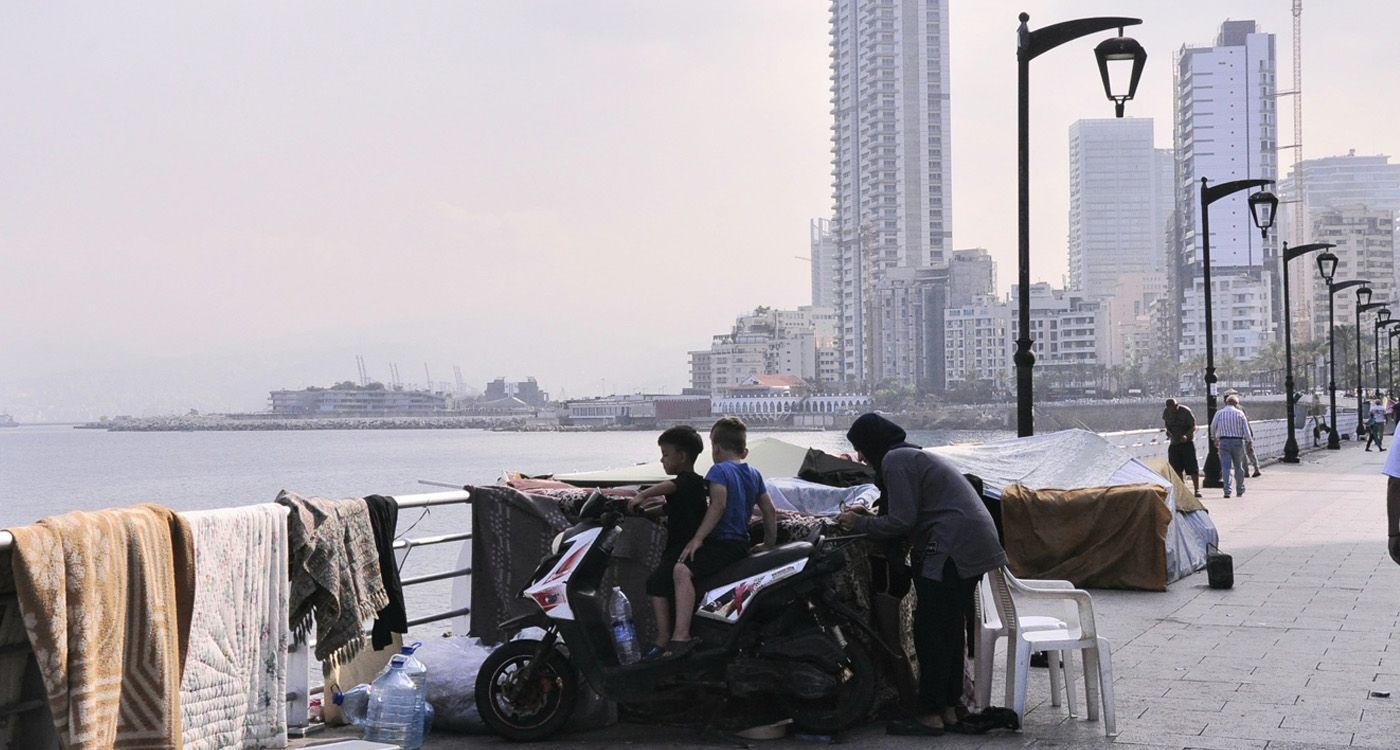
As the fighting between the Israeli Army and Hezbollah escalated in southern Lebanon, tens of thousands of displaced people converged on Beirut, where they were warmly received by its inhabitants. They opened their hearts and homes, making schools and restaurants available to those escaping the devastation of war and death from southern Lebanon, the Beqaa, and the southern suburbs.
However, this displacement is closely tied to grim stories fueled by chaos and intimidation. A short walk through the city’s streets is sufficient to encounter hundreds of accounts from locals whose homes were forcibly taken over by displaced people affiliated with the Amal Movement and Hezbollah.
Among the stories that came up is one about a landlord in the Koraytem area, who currently lives and works in Dubai. He recounted receiving a call from the building superintendent at midnight, informing him that strangers were inside his apartment. He immediately contacted his relatives, who rushed to the location. However, they were surprised to find the door tightly shut and were unable to enter. When I asked for more details, he explained that the displaced individuals had broken down the door after realizing the apartment was vacant and replaced the lock with a new one. Security forces intervened, granting them 48 hours to vacate the premises.
All it took to alter the city’s landscape was three weeks. As one travels through the seaside neighborhoods of Ain al-Mreisseh, Raousheh, and Ramlet al-Baida, they find tents set up by displaced individuals, resembling makeshift homes, surrounded by large groups of young men on motorcycles. These youths often provoke passersby. At the edge of these grouping, shisha pipes and improvised stalls are scattered, surrounded by hundreds of motorcycles that seem to act as a shield for this chaos.
Hamra Street is a different story altogether. Ras Beirut’s residents have dubbed it “Al-Lailaky” referring to the neighborhood in the southern outskirts of Beirut. Shishas are scattered across the sidewalks, spilling into the roads with total disregard, while crowds of people choke every corner, despite the vacant spots they refuse to relocate to. The street has lost its former tranquility. Amid this noisy backdrop, personal firearms are displayed openly, adding further tension to the scene and making it seem as though the area has transformed into an open-air arena governed by chaos and disorder.
One important question remains: What if the residents of Beirut were to move to the cities of Bint Jbeil and Nabatiyeh and behave like the displaced do in Beirut? How would the latter react? Would they accept crowded sidewalks, the proliferation of water pipes, the disrespect, and the vandalism of public and private property? Would they tolerate the sight of firearms as if they were aimed at them rather than directed at the Israeli enemy? This isn’t merely a question worth mulling over; it reflects a significant issue that tests the harsh reality imposed on Lebanon and its capital, Beirut. Long before Hezbollah and Iran even existed, Lebanon fought against Israel and lost its finest sons as martyrs in defense of its sovereignty, independence, and freedom.
Beirut's landscape has changed, but the old narrative remains the same. Anyone who objects to the provocative scenes filling the streets of Beirut is labeled a Zionist. When security forces or the Lebanese Army come to evict displaced individuals from an occupied building, they too are branded as Zionists. Anyone who opposes those who had ignited the war (Hezbollah) faces similar accusations, and anyone who rejects illegal arms is labeled similarly. Even this article will not escape such allegations, as online trolls will share it on Twitter, claiming that I am a Zionist.
I am not a Zionist... I am a resident of Beirut, deeply concerned for my city, my identity, and my people. I am saddened by the disfigured streets and the chaos that altered their character. Why is there so much hatred toward Beirut, a city that embraces everyone who visits, engraving in them a spirit that lingers for a lifetime?



Comments